This sub-programme has three elements. Firstly, it brings together the WHO, GDI Hub and Clinton Health Access Initiative (CHAI) to develop, test and learn from Country Capacity Assessments. Secondly it supports countries to develop national action plans. Thirdly it funds investment to support national AT priorities in these countries. Partners: Clinton Health Access Initiative (CHAI), World Health Organisation (WHO), Maynooth University
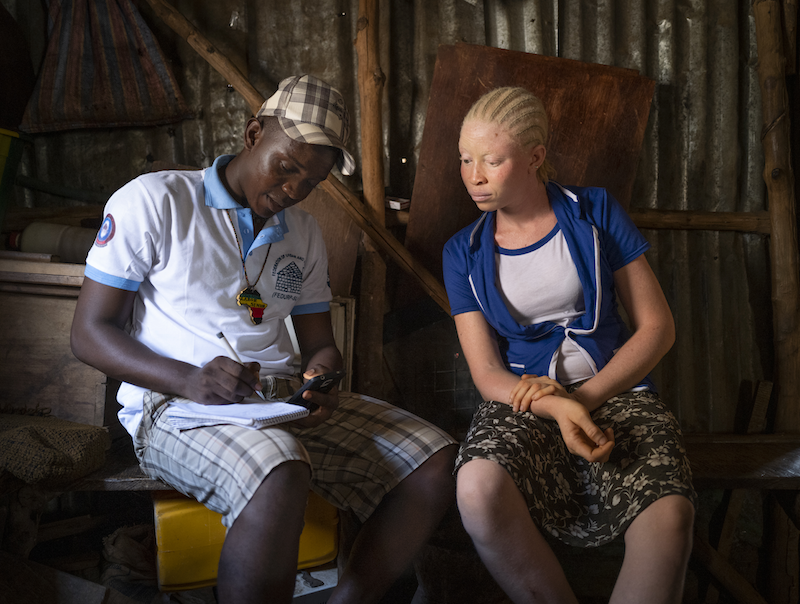
Amadu, Sierra Leone. Credit - Angus Stewart
AT need and supply gap
Despite the proven advantages of AT for disabled and older people, their families and society as a whole, there is still a vast and stubborn gap between the need and the supply. Currently only 10% of those who need AT currently have access to it.
A human rights basis for AT established in UN Convention on the Rights of Persons with Disabilities (UNCRPD), is ratified by 181 countries worldwide. The known barriers that a lack of AT brings to the realisation of the Sustainable Development Goals (as well as increased momentum in the disability movement and academia), have helped to show that used appropriately and delivered with the right services and education, in the context of an accessible environment - AT is empowering, cost-effective and vital to meet the growing needs of 21st-century populations.
Evidence-based policymaking
Even though this need globally has been established, many countries lack data and information to make evidence-based policymaking in relation to AT a reality. The WHO World Report on Disability found that barriers to inclusion include amongst others; inadequate policies and standards, and a lack of data and evidence.
Data collection methods
As part of AT2030, WHO have worked with GDI Hub, CHAI and UCL to develop and refine the ATA-C (capacity assessment) and rATA (population data) tools to create a CCA toolkit, designed to enable data collection at both a systems and community level respectively in order to give an overarching view on a national landscape in relation to AT. The tools have now been trialled across a number of countries, including 7 countries in Africa, Mongolia and Indonesia. The process of embarking on and concluding the CCA process has enabled the collection of data, but has also motivated countries to pursue continued progress in the access of assistive technology for disabled people.
Policy makers and stakeholders
The CCA has proven instrumental in raising policymakers and wider stakeholders’ awareness of the need for and the importance of AT - as well as the current gaps in AT provision - aiding decision-makers to understand what their AT priorities are.
The third element is a £1 million Country Investment Fund (CIF), which aims to make direct investments in activities which deliver foundational, strategic, agreed national AT priorities - reaching disabled people directly with access to AT in up to 5 African countries that have completed a CCA. This will build an evidence base - finding out ‘what works’ to get AT to the people that need it around the world.
Latest
-
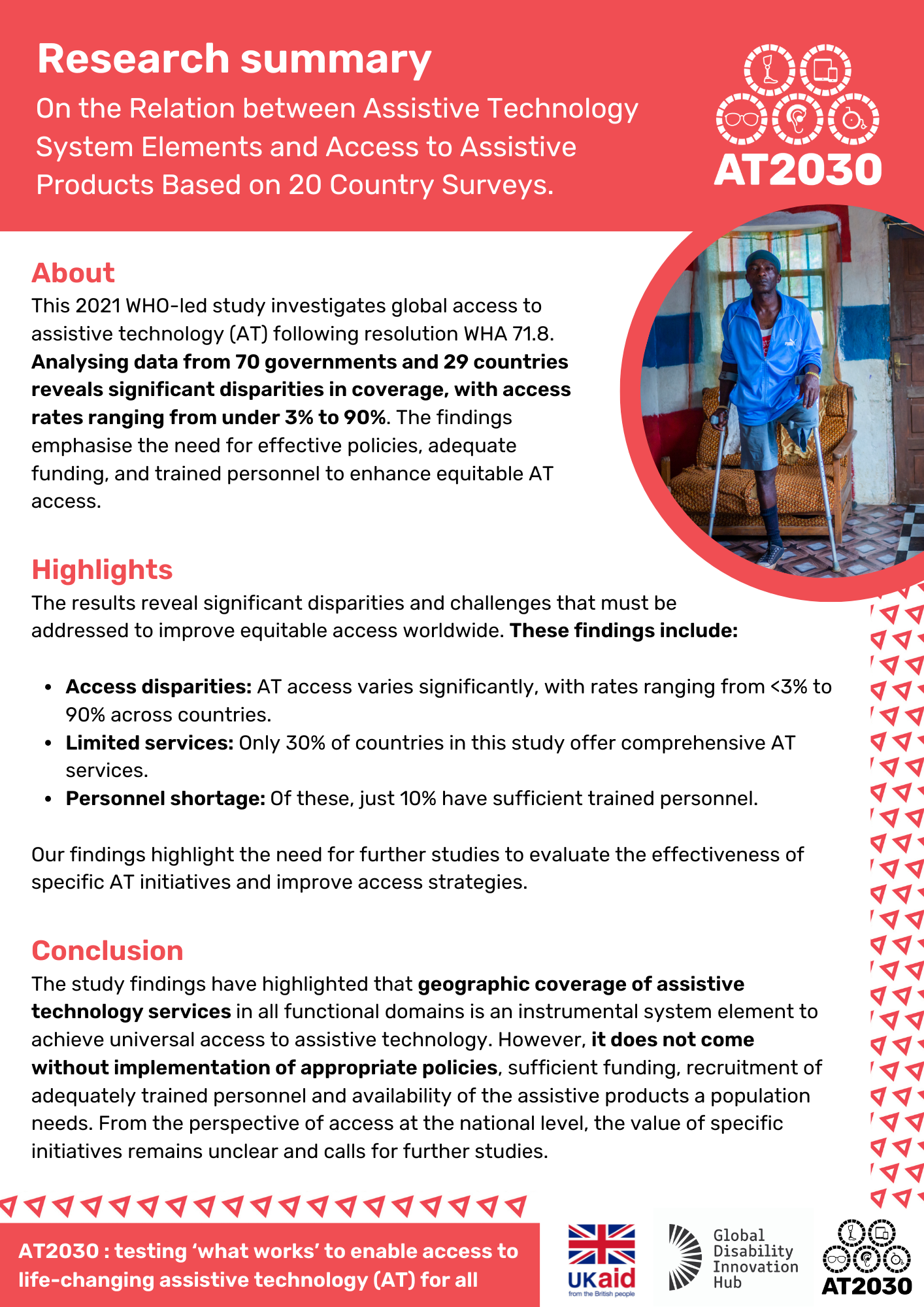
On the Relation between Assistive Technology System Elements and Access to Assistive Products Based on 20 Country Surveys - Research Summary
Wei Zhang, Johan Borg, Irene Calvo, Chapal Khasnapis, Mikael Winberg, Arne H EideNov. 1, 2024Research SummariesClick here to read a summary of the WHO-led 2021 study on global access to assistive technology (AT). The study reveals significant disparities in AT access, with rates ranging from less than 3% to 90% across countries. While many nations have AT policies, only 30% provide comprehensive services, and just 10% have sufficient trained personnel. Further research is essential to evaluate specific initiatives and enhance equitable access worldwide.
-
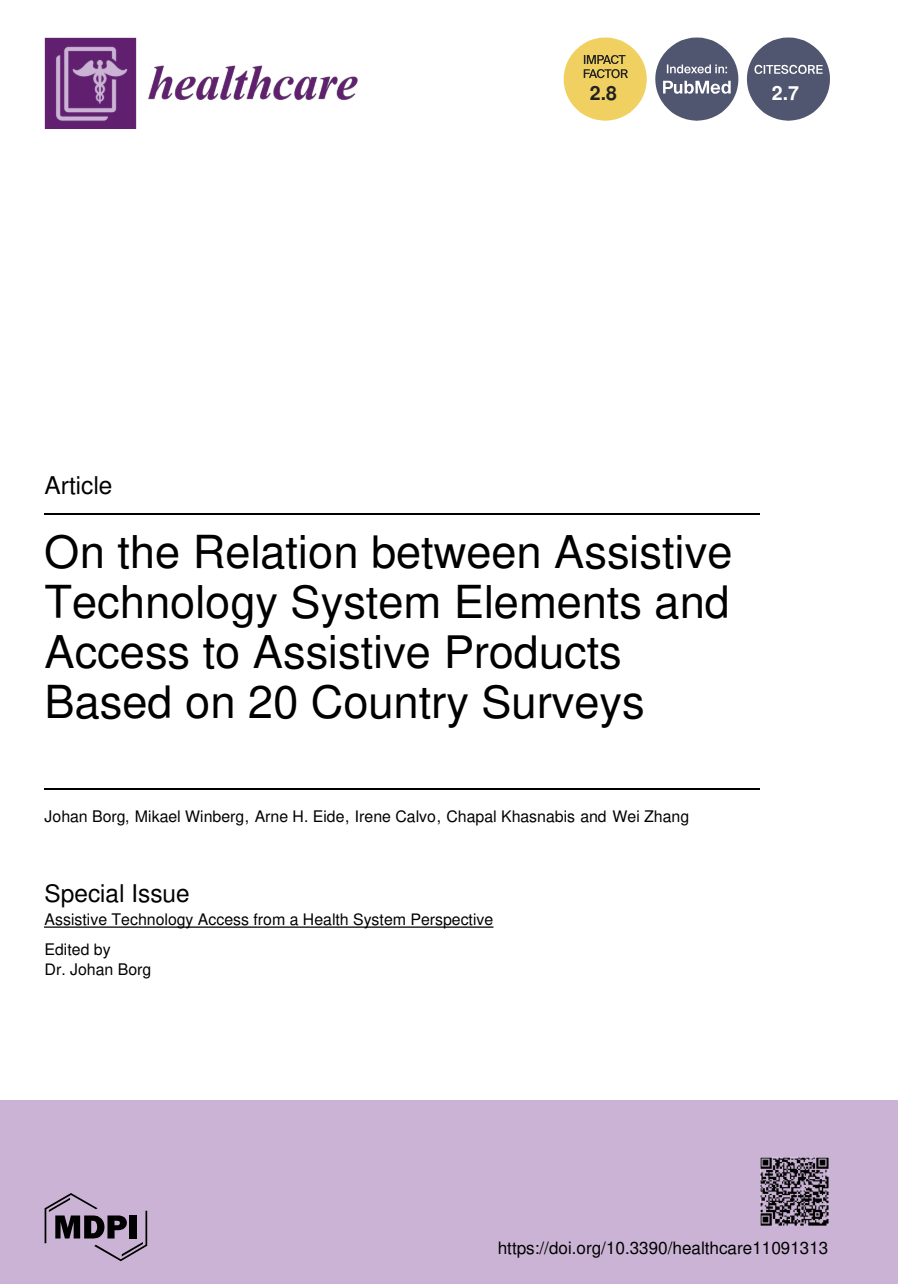
On the Relation between Assistive Technology System Elements and Access to Assistive Products Based on 20 Country Surveys
Wei Zhang, Johan Borg, Irene Calvo, Chapal Khasnapis, Mikael Winberg, Arne H EideMay 3, 2024GLobalAcademic Research PublicationsThe objective of this study was to explore the relationship between assistive technology system elements and access to assistive products. Data on assistive technology system elements and self-reported survey data on access to assistive products from 20 countries were analyzed using multivariate statistical methods, including orthogonal partial least squares analyses.
-
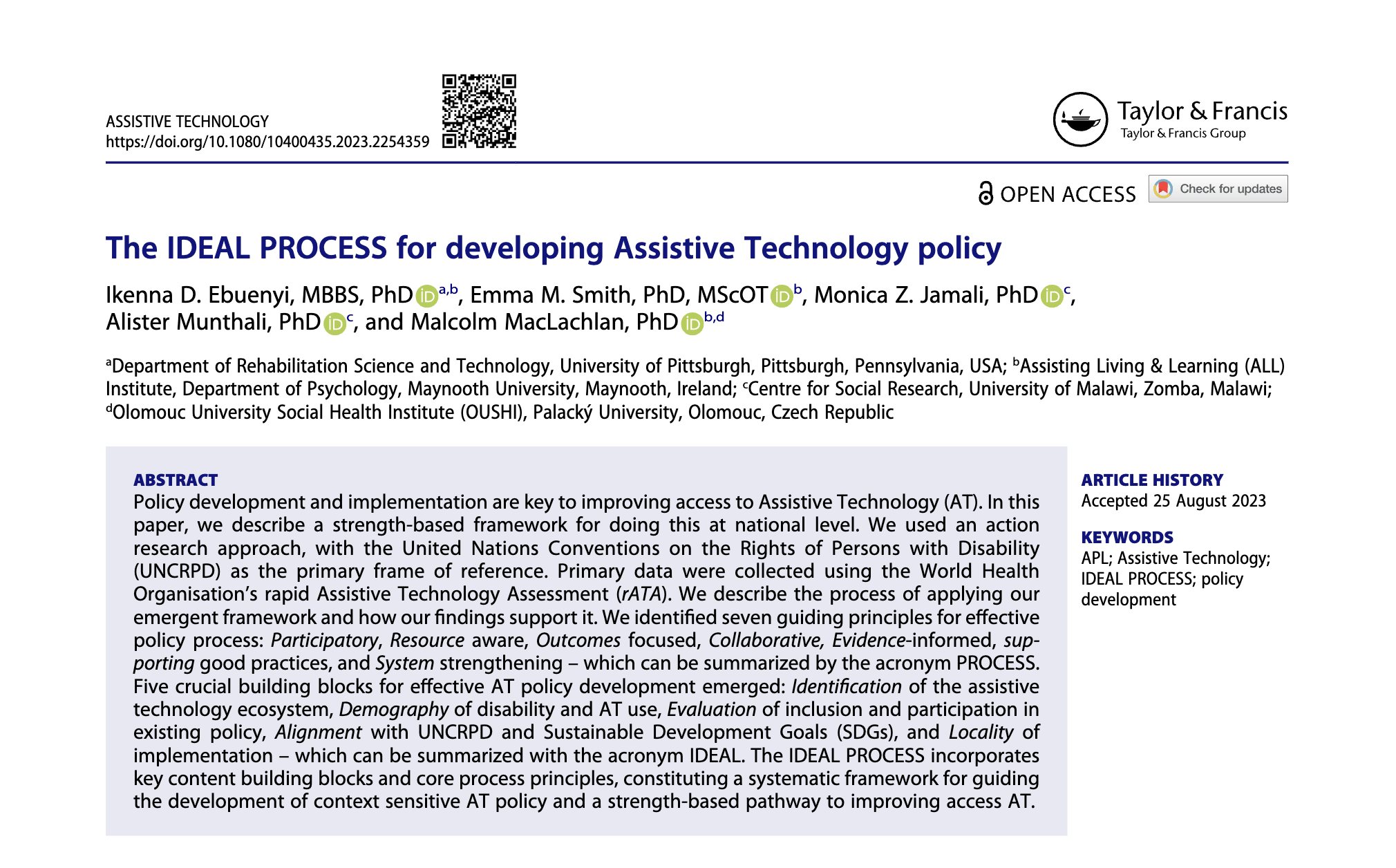
The IDEAL PROCESS for developing Assistive Technology policy
Malcolm MacLachlan, Emma M. Smith, Ikenna D. Ebuenyi, Monica Z. Jamali, Alister MunthaliSept. 19, 2023GlobalAcademic Research PublicationsPolicy development and implementation are key to improving access to Assistive Technology (AT). In this paper, we describe a strength-based framework for doing this at national level. We used an action research approach, with the United Nations Conventions on the Rights of Persons with Disability (UNCRPD) as the primary frame of reference. Primary data were collected using the World Health Organisation’s rapid Assistive Technology Assessment (rATA). We describe the process of applying our emergent framework and how our findings support it.
-
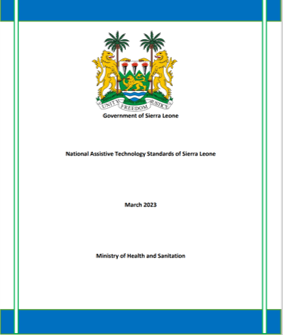
National Assistive Technology Standards of Sierra Leone
Ministry of Health and Sanitation Sierra LeoneApril 19, 2023Sierra LeoneAT2030 ResourcesThis document was developed to guide the procurement of assistive products in Sierra Leone. It is intended primarily for procurement teams, implementing partners and donors working on providing AT devices for all forms of disabilities.
-

Government of Sierra Leone National Assistive Technology Procurement Guidelines of Sierra Leone
Ministry of Health and Sanitation Sierra LeoneApril 19, 2023Sierra LeoneAT2030 ResourcesProcurement guidelines which seek to standardize the procurement process of AT products for Sierra Leone.